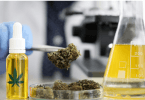Rhinoplasty, commonly known as a nose job, is one of the most popular cosmetic procedures performed worldwide. Whether you’re seeking rhinoplasty for aesthetic refinement or to improve breathing issues, the process involves more than just the surgery itself. In fact, a significant part of achieving smooth, successful results comes down to how well you prepare beforehand.
Proper preparation sets the tone for a more comfortable recovery, fewer complications, and better overall satisfaction with your outcome. In this guide, we’ll walk you through everything you need to do—from a few weeks out to the morning of surgery—to feel confident and fully ready for your rhinoplasty experience.
Understanding the Rhinoplasty Journey
Before diving into the checklist, it’s important to understand what rhinoplasty involves and what recovery typically looks like. Rhinoplasty can be performed for cosmetic reasons—such as reshaping a hump or refining the nasal tip—or for functional reasons, such as correcting a deviated septum to improve breathing.
Recovery varies by individual, but most patients can expect to return to work or school within 7–10 days. Swelling and bruising will gradually subside over a few weeks, while subtle changes in nasal shape may continue to refine over the course of several months.
Setting realistic expectations, preparing both physically and mentally, and following your surgeon’s instructions closely are key components to achieving your desired results.
Two to Four Weeks Before Surgery
Choose a Board-Certified Surgeon
If you haven’t already, selecting a qualified, board-certified plastic surgeon is your most critical step. Look for credentials from the American Board of Plastic Surgery and take time to review before-and-after photos of their work. Schedule a thorough consultation to discuss your goals and concerns.
Schedule Medical Clearance
Your surgeon may request blood tests, EKGs, or medical clearance from your primary care physician to ensure you’re healthy enough for surgery. Be upfront about any medical conditions or medications you’re taking.
Stop Smoking and Limit Alcohol
Smoking negatively impacts circulation and slows healing, increasing the risk of complications. If you smoke, it’s essential to stop at least 3–4 weeks before and after surgery. Likewise, avoid alcohol, which can interfere with anesthesia and medication.
Review Medications and Supplements
Some over-the-counter medications and supplements can increase bleeding risk. Your surgeon will provide a list of what to avoid—including aspirin, ibuprofen, vitamin E, and herbal remedies like ginkgo or garlic. Only take medications that are approved by your surgical team.
Plan Your Time Off
Depending on the nature of your job or lifestyle, arrange to take at least one to two weeks off. You’ll also want to avoid strenuous activity and workouts for several weeks post-surgery, so plan accordingly.
One Week Before Surgery
Prepare Your Home Recovery Space
Set up a calm, clean area at home where you can rest without interruptions. Stock it with soft pillows to keep your head elevated, tissues, a humidifier, and easy access to snacks, water, and entertainment.
Purchase Post-Surgery Essentials
Some items you’ll want on hand include: saline nasal spray, gauze, ice packs or gel masks, lip balm (your mouth may feel dry), and button-up shirts that won’t need to be pulled over your face.
Fill Prescriptions in Advance
Your surgeon will likely prescribe pain medication, antibiotics, or anti-nausea medication. Pick these up before your surgery so you’re not scrambling afterward.
Arrange Transportation and Care
You’ll need someone to drive you to and from surgery and stay with you for the first 24–48 hours. Consider asking a close friend or family member to help monitor you and assist with meals or medication reminders.
Eat Nutritious Meals and Stay Hydrated
In the final week, focus on fueling your body with whole foods rich in vitamins and protein. Good nutrition supports your immune system and helps your body heal more efficiently after surgery.
The Day Before Surgery
The day before your rhinoplasty, you’ll want to finalize all preparations so you can relax and focus on the procedure ahead.
Follow Pre-Op Instructions
Your surgeon will provide specific guidelines, which may include showering with antibacterial soap and avoiding lotions, makeup, or skincare products. These steps help reduce the risk of infection.
Eat Light and Stop Eating by the Recommended Time
Most surgeons require you to fast for 8–12 hours before surgery, especially if general anesthesia will be used. Plan your meals accordingly and drink plenty of water earlier in the day.
Avoid Stress and Get a Good Night’s Sleep
A calm mind is just as important as a prepared body. Avoid screens and stimulating activities close to bedtime, and aim for at least 7–8 hours of restful sleep.
The Morning of Surgery
This is the final step before your rhinoplasty. You should feel as ready and relaxed as possible by now.
Dress Comfortably
Wear loose, comfortable clothes that don’t need to go over your head. A zip-up or button-up top is ideal, and slip-on shoes make for easier movement.
Remove Jewelry and Makeup
Be sure to arrive makeup-free, without nail polish, jewelry, or contact lenses. These small details help reduce risks during surgery and are usually required by your surgical team.
Stay Calm and Positive
It’s completely normal to feel nervous. Take deep breaths, remind yourself why you chose this path, and trust in the preparation you’ve done and your surgeon’s expertise.
Post-Op Preparation Tips
Your recovery will go more smoothly if you take time beforehand to prepare your mind, body, and environment.
Create a Peaceful Recovery Zone
Rest is essential after rhinoplasty. Set up a cozy space with extra pillows to help keep your head elevated and reduce swelling. Avoid pets or small children who may accidentally bump your nose during recovery.
Schedule Follow-Up Visits
Make sure your post-op appointments are scheduled before surgery day. These check-ins are essential for monitoring your healing progress and catching any potential concerns early. If you’ve chosen to undergo rhinoplasty in Beverly Hills, your follow-up visits with a top facial plastic surgeon are essential for monitoring your healing progress and ensuring optimal results.
Consider Emotional Support
Rhinoplasty recovery can involve temporary swelling and bruising, which may impact your confidence. Be kind to yourself and consider joining an online support group or community where you can share experiences and stay motivated.
Preparing for rhinoplasty goes far beyond just scheduling a surgery date. By taking proactive steps weeks before your procedure—and following a thoughtful checklist—you’ll be setting yourself up for a smoother, more comfortable recovery and better long-term results. From choosing the right surgeon and modifying medications to organizing your home and support system, every detail matters.
Rhinoplasty is a personal journey that blends physical transformation with emotional readiness. By staying informed, planning ahead, and caring for yourself before and after surgery, you’re giving yourself the best possible foundation for success.







